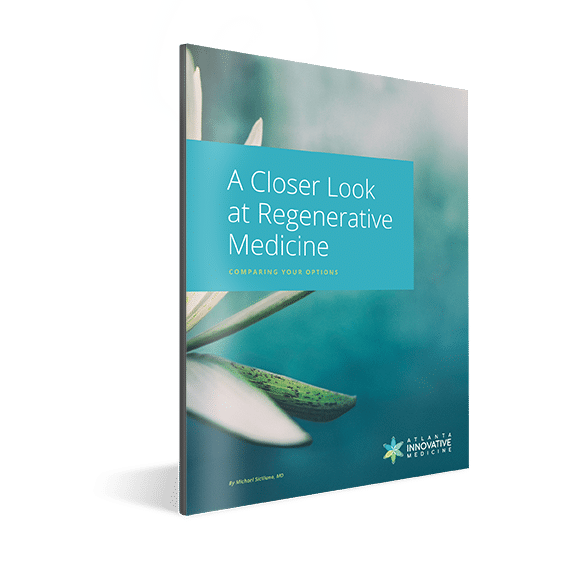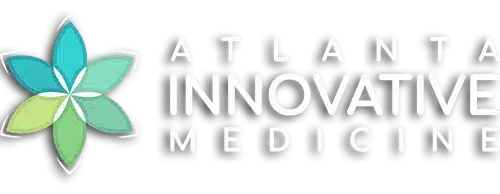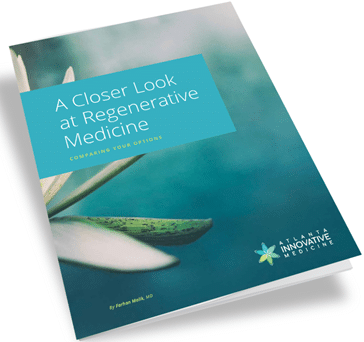By Farhan Malik, MD
Atlanta Innovative Medicine
Kobe Bryant and Tiger Woods have done it. So have Maria Sharapova, Rafael Nadal, David Ortiz, Troy Polamalu and countless other high level athletes. Using platelet rich plasma (PRP) to recover from a sports injury has become commonplace for elite competitors—for runners, golfers, basketballers, tennis players and beyond.
Why The Pros Use PRP
Muscle sprains, tears and other soft-tissue injuries are common, especially among athletes. Oftentimes, the RICE method (rest, ice, compression and elevation) just isn’t working fast enough or effectively enough to get active people back into the activity they love doing. So they turn to PRP therapy to enhance the process of healing and decrease their recovery time.

Using PRP For Muscle Injuries
Multiple studies have examined outcomes for the use of PRP in treating these injuries. It’s been shown to promote muscle recovery thanks to the growth factors released from activated platelets—and in doing so, reducing pain, swelling, and the time it takes to return to play sports.
Studies suggested that PRP may have benefits associated with the increased release of cytokines and growth factors resulting from supraphysiological concentrations of platelets that facilitate muscle repair, regeneration and remodeling.
What this means: PRP operates under the theory that injecting growth factors from the blood into an injured area will cause new tissues to form, reducing inflammation and promoting tissue formation.

Subscribe for Expert Insights and Our Ebook
A Closer Look at Regenerative Medicine: Comparing Your Options Learn about treatment options like Platelet Rich Plasma (PRP), Prolozone Therapy, and Stem Cell Therapy.
See if PRP could help your pain.
How PRP Works
Your blood consists of solid cells, including red blood cells, white blood cells and platelets, which are suspended in a liquid called plasma. The platelets contain hundreds of growth factors, which are proteins that play a vital role in the body’s natural healing process.
In order to deliver the therapy, a small amount of blood is drawn from a patient and spun in a centrifuge, which separates the different components. The red blood cells and much of the plasma is drained away, leaving a high concentration of platelets and growth factors. This PRP, derived from the patient, is then injected into the damaged area of the body to stimulate healing.
Treating More Than Muscle
The treatment has been used frequently for muscle injuries and other soft-tissue damage, including meniscus tears, sprains and strains. Researchers have also shown the promising impact of PRP on osteoarthritis (OA), including a review in the British Medical Journal that concluded PRP [Therapy] not only reduced pain more effectively than placebo injections in osteoarthritis of the knee, but that function was significantly improved when compared to controls.
Learn about Super Concentrated PRP (SC-PRP)
Next Step: Learn If PRP Is Right For You
Do you want to discuss platelet-rich plasma and other options for recovering faster from a muscle or soft tissue injury? We’re ready to help you get back in the game. Contact our experts at Atlanta Innovative Medicine for an evaluation.
Quizzes
Are you a candidate for Regenerative Medicine?
Regenerative medicine can be an effective therapy and treatment option for lasting pain relief for a variety of conditions like osteoarthritis of the knee, hip or shoulder; ACL or meniscus tears; tennis or golfer’s elbow; chronic neck and back pain; and more.
Is it right for you and your condition? Take 1 minute to answer a few “yes or no” questions that help to assess if you might be a candidate for PRP, stem cell or other nonsurgical regenerative treatments.
Are You a Stem Cell Candidate for Your Joint or Spine Damage?
Are you a candidate for Platelet Rich Plasma (PRP) Therapy?
Do I have nonsurgical options for my injured or aging joints?
Take the Pain Medications Risk Quiz

Regenerative Medicine.
Reimagined
- Advanced hybrid therapies, including Mesenchymal Stem Cell therapy combined with different mechanisms of action that synergistically come together to support ultimate healing
- More powerful PRP that’s customized, amplified and personalized
- Therapies delivered by an experienced, compassionate team comprised of multidisciplinary experts in traditional and alternative medicine working as your team: Medical Doctors, Nurse Practitioners, Physiotherapists and Chiropractors
- Advanced training through the American Academy of Orthopedic Medicine, the American Osteopathic Association of Prolotherapy Regenerative Medicine, and more
All content of this page is for informational purposes only and is not intended to serve as a substitute for the consultation, diagnosis, and/or medical treatment of a qualified physician or healthcare provider. Individual results may vary. Your medical professional can explain all the risks and potential benefits of any therapy based on your specific circumstances. At this time regenerative therapies are not FDA approved. Neither Atlanta Innovative Medicine nor its physician affiliates promise regenerative therapies as a cure for any condition, disease, or injury.
Other Atlanta Areas We Service:
© 2024 Atlanta Innovative Medicine, LLC. All Rights Reserved. AIM Scholarship Opportunity








